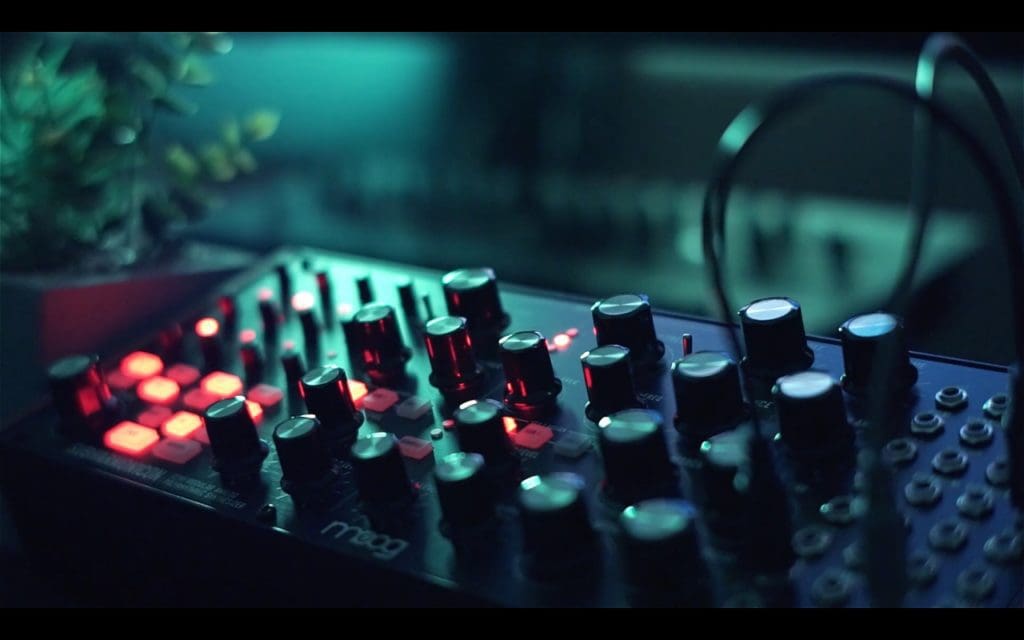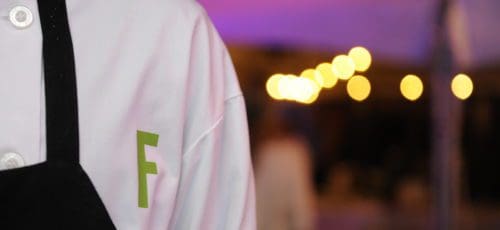Happy Hour on the Fringe: James Allister Sprang, Aquifer of the Ducts
In this episode of Happy Hour on the Fringe, Artistic Producer Zach Blackwood speaks with James Allister Sprang about Sprang’s upcoming performance, Aquifer of the Ducts, which will run in this fall’s Fringe Festival. During performances, Sprang will guide listeners through a soundscape composed of field recordings and synthesizers. Blackwood and Sprang anticipate this performance in the context of a digital festival, and discuss how Aquifer of the Ducts will allow for a shared experience through a digital platform. Sprang describes his creative process of walking around the world with his Panasonic cassette tape player, and how for him this interaction with sound allows him to be more present in “the moment that just passed”. To learn more about James Allister Sprang you can visit his website here: https://jamesallistersprang.com/About-1
Zach Blackwood: Hello and welcome to Happy hour on the Fringe. Fringe Arts is Philadelphia’s premiere presenter of contemporary performing arts. I’m Zach Blackwood, an artistic producer here at Fringe Arts. And I invite you to pour yourself a beverage and enjoy our conversations with some of the most imaginative people on this plane of existence. Today we’re joined by James Allister Sprang, a Philadelphia-based multidisciplinary artist who will be presenting his piece, Aquifer of the Ducts, in this fall’s Fringe festival. That is- Ducts, I’m sorry for my annunciation. The performance experience is a 40 minute soundscape of layers field recordings and modulated synths. James will guide audience members through a meditative deep listening experience designed to create space for the whole present. Welcome James.
James Allister Sprang: Hi thanks for having me.
Zach: Hi James thank you for joining us its always nice to speak to you, I like just want to tell our listeners at home, James is present in the piece right? He is guiding you through this piece and James is particularly skilled at that I must say. Like in terms of being this welcoming presence and kind of giving you like a pre-show, a show, and some aftercare. And I just always appreciate speaking with you.
James: Thanks, that’s very kind. I really appreciate it.
Zach: So before we dive into your piece, Aquifer of the Ducts, I’d love to orient the audience to your practice more broadly. So James works across multiple mediums, designing works for gallery settings and theaters, or like using photography, sound, duration, installation. Creating a unique vocabulary of poetic symbol production, investigate society’s processing of symbol and language. Sprang’s work is a rigorous parallax of new-media storytelling informed by the poetry of the black experimental prediction. James does that feel fair and present? And maybe what things are top of mind for you right now?
James: Yeah that’s perfect that’s perfect, truly. Thank you, thank you so much.
Zach: Of course. How are you kind of feeling at this time, you know? We’ve got a festival coming up in a couple weeks. There’s also the whole of 2020 kind of behind us and propelling us forward to the end of this experience. There’s um, politics. There’s so much.
(Laughter)
James: Yeah. There’s uh, there is a lot going on. Um and we’re all processing in real time. And its just uh, I’m just doing my best to be the best creative thinker, critical thinker, as I buffer alongside processing my day to day things.
Zach: I definitely feel that. Um, It’s wild to move through this experience right now because I um, the stakes of everything feel very very high. And I really enjoy that your piece is attempting to make space to recognize and reckon with that experience. It feels meditative both in terms of um, the soundscape and the way that you let your body dissolve into this kind of collective shared listening experience with other people but also in the way that it asks you to look inward and ask questions about race and also I’m just really really excited for this work in particular in the way that it creates space for people really just take in all the things that are happening in the world right now and I think that you’re the best guide to help people do that in a way that feels tender and foregrounded in care.
James: Zach thank you I appreciate it. I… Thank you. I really do appreciate that comment. And yeah, I guess all I’d add is I think listening… just the act of listening is something that’s of the utmost significance in this moment and in the immediate moments following.
Zach: Yeah, so in Aquifer of the Ducts audience members are encouraged to zoom into a 40-minute meditative experience in sound and video. As you’re doing this what… as you’re kind of crafting this piece and working towards this upcoming engagement in the Fringe Festival, what kind of experience or conversation are you trying to implicate for audiences? Knowing that there’s so many conversations kind of happening already.
James: Yeah I mean I guess… I guess in its distillation I’m just trying to facilitate some sense of togetherness despite the fact that It’ll be facilitated over Zoom. There’s something really nice about, even if its just like listening to an MP3, when you know that there’s several other people listening at the exact same moment, the exact same thing you are. And I think we are all experiencing that in multiple ways right now. I guess I thought maybe I could shift the lens to something a bit more abstract, something… that could vibrate on a higher frequency. While still maintaining kind of the social form that we’re all entrenched in right now.
Zach: Yeah I’ve been having like a weird, almost like second wave of uh feeling deeply despaired by the internet, and feeling deeply despaired by this being a necessity for the way that I communicate with people right now. And I felt that way of course maybe at the eight week point of lock down, and I was like ‘oh, this is real’. (Laughter) And this is like not, we’re not slowing the spread, like this is what our lives look like now. And then um, kind of again pretty recently and I don’t know why I was having that experience but one thing that helped me through that moment was remembering that like the internet is not a place that is devoid of community. There are so many communities that exist because the internet exists. And thinking about like, I’m, well I was gonna tell people this later in the podcast but I am from Florida, and James is also from Florida… we’ll get into that. Any who, being like a kid who’s deeply into contemporary art and like um, like cult film, like in central Florida in 2005 that’s how I connected with people, was online, and I did find vital community there in sharing, in kind of gathering together around shared experience. And I think we maybe do a dis-service to the ways that we are able to connect with each other by automatically deciding that interfacing with art digitally is this paled comparison to a real experience. I do think there’s something to be said about all of us gathering from afar to have this experience. And how does this work to cut away the necessity of proximity in actually listening to someone and understanding them. There’s a lot in there. I’m saying I hate the internet but I love the internet so much.
James: Yes I get it, I get it. There was a lot in there and I do appreciate and agree and resonate with your quick synthesis of it just now. I think you know its just important to remember that the internet was … yeah the internet was generated to facilitate community alongside a past that is… along, okay let’s see. Alongside our communities IRL if you will. And there’s something very spooky about all the things that have been imbedded within these digital forms of community now that our relationship to community IRL is sort of, on the hold for a long time. And I think just sitting with that and appreciating that and reckoning with that can maybe help us when we return to our IRL moments.
Zach: Yeah I mean, I am so hoping that the experience of this festival and all of the works in it will invite people to re-orient their experiences of the kind of web right now. I know that a lot of us have been grieving the experience of going to live performance, but I think that what we’re actually trying to create in this moment is an opportunity to pick up your laptop and actually look at it, you know like audit the form. (laughter) To be a total contemporary art asshole for a moment. Like audit the form and be like listen, what do I use this thing for, do I use it to talk or can I use it to listen today? Um, and really actively making that shift. Like our senses are so weird right, in like to hear something in particular, to listen to something in particular because it can happen passively and you get some watered-down version of things, but you can really like tune that particular sense and all of the sudden like, I don’t know the act of choosing to listen actually unlocks like what you’re trying to hear in the first place. I’m just really excited for you to guide folks through that experience.
James: Thank you… yeah. I also just want to say I think its, I like this phrase auditing the form a lot (laughter). And I imagine you with like a plastic green hat on, you know? (Laughter) But yes, yes, and also I hope that while people are maybe questioning their relationship to that object and that larger series of questions, they can also just like, plug in their headphones and lay down and close their eyes and listen and feel and maybe afterwards remember that they were tethered to this object and this larger series of questions the whole time.
Zach: Oh yeah, that sounds so nice right now.
James: Yeah.
Zach: It sounds like a sort of… spa-cation.
(Laughter)
James: Spa-cation. Let’s go, let’s go.
Zach: Oh my gosh right? Like, bring back spa’s when they’re safe. So I want to speak a little bit about the development of this work you use field recordings in a pretty interesting and kind of novel fashion here. Can you kind of walk people through some of the nuts and bolts here of this work? You know? The stuff that’s not proprietary James Allister Sprang magic?
James: Haha I… yeah and I mean I think, I think to add to your wonderful introduction one of the things that I’m interested in is the spatialization of sound and advancements being made in that field of technology which allows me to kind of move sound through the room, as if it were, as if it were a sonic holograph as we say. And I’m very passionate about that because ultimately these field recording that you’re asking about are an opportunity to work with disembodied voices. And yes an instrument allows me to process those field recordings and then after the fact, after that sound design has been implemented I can then spatialize that sound further disembodying sound or disembodying the voice and its this ghostly, this ghosted affect that I’m very interested in. So in the past everything that I was doing was digital, it was a digital instrument that I designed and programmed. However for this piece Aquifer of the Ducts I’m kind of building an analog instrument because I’m spending so much time in front of my computer it’s hard to do all of the day to day pedestrian things using this interface on top of you know, my creative cells. So I’ve moved to analog since mainly like, Moog, synthesizers and I’m using cassette tapes and cassette loopers and kind of re-routing signal through those things to generate these soundscapes. Does that answer your question?
Zach: That does answer my question. Like you’re… making new sounds you know? And you are using kind of these field recording as that source material and then flexing it and pulling it and disembodying it and giving it this kind of taffy effect. Its deeply powerful and its novel and exciting I just… I really deeply am a fan of yours. (Laughter). Its exciting to get to hear you talk about some of the nuts and bolts that go into these experiences that do feel like they um, get at a feeling that I have about not being understood, or not being um, or people assigning subtext to the things that I say. Right? And there’s something about having this kind of ambient sound that’s flexed in this intensional fashion right? I don’t know it just it feels like taking control back in a certain way.
James: Thanks I mean I guess… Zach you’re so sweet I really appreciate you and this conversation. Yeah I think I, I’m glad that you feel that way and I think ultimately it’s a result of me trying to take control back in the studio, you know that’s where it’s all coming from. And now I get to like walk around in the world with this cassette (laughter) with this like Panasonic cassette tape player like I’m, you know, wearing cropped shorts in Williamsburg, and I get to record the world around me and kind of bring it back and pull those frequencies apart and try to get my hands into the textures and timber and resonance and reverb, and all as a way of maybe being more present in the moment that just passed.
Zach: Yeah. That- but that’s the best distillation of it that I’ve ever heard you know like… (laughter). It’s keeping a record you know? Of your experience and its not meant to be understood by other people. That’s released itself from the idea of a kind of legibility that says that you can live in my experience. Thats the (unintelligible). Jimminy Cricket, well it is always so so lovely to speak with you I do want to get into a little bit.. so this piece, is this part of a series, of works?
James: Yeah it’s a series of works about making right now, you know? In this Coronavirus moment, yes. So it is a second out of what I think will be four.
Zach: And these are four different aquifers of things. Aquifer of the Spirit was the first piece, right? And then, Aquifer of the Ducts will be the second, that’s deeply exciting. How have you settled upon this thinking, about an aquifer? How does that filter into the thinking around this work?
James: Well luckily I’ve done a lot of the rambling already so I guess just to index back to what I was saying earlier its just uh… I think aquifers just a really nice material metaphor for what it means to kind of process, or allow something to sift through you, pass through you.
Zach: I’m so excited for this piece. I had some more questions about aquifers but really just like, I will say if you’re listening at home, look up an aquifer map of the United States, it is a very beautiful thing to look at. And its just very interesting to think about the way that the world is differently structured beneath Earth. And that the assignments that we put on things maybe aren’t that valuable in the end (laughter).
James: Yeah, exactly.
Zach: Well, James. I want to thank you so much for really getting heavy with me here on Happy Hour on the Fringe. I always enjoy speaking with you. You like feed all of my um, desires to like read a really good book of poems and also like, read critical theory at the same time, I don’t know. There’s, yeah, you’re my favorite, anyway. Where can people find out more about your work Aquifer of the Ducts, and how to further support you.
James: Uh, check out the festival. I have a website, jamesallistersprang.com. Thanks so much for having me Zach.
Zach: Thank you James. And thank you to all of you listening at home. For more information about the entire slate of Fringe Festival 2020 programming please visit us at fringearts.com or on Instagram Twitter and Facebook @FringeArts. Thank you so much for joining us for this episode of Happy Hour on the Fringe.



